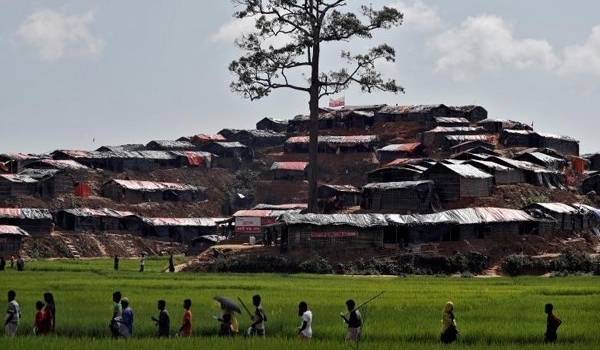
RNA - Clashes between rebels and the army initially broke out in 2011 in Kachin State after 17 years of cease-fire, Anadolu reported.
The violence in Myanmar is escalating, paving way for a new crisis and a possible ethnic cleansing wave.
According to the UN, more than 5,000 civilians were displaced from villages near the Chinese border in the last three weeks as a result of clashes between the Myanmar army and Kachin Independence Army (KIA).
The displaced Kachins are mostly piled up at the China border while more than 2,000 are stranded in the forests.
A food convoy of the Myanmar Red Cross was reportedly prevented from entering a Kachin village last week, said the UN.
Kachin Alliance president Gum San Nsang told Anadolu Agency the community was promised the right to self-determination and an autonomous state.
He said after independence the state managed its own affairs with minimum involvement by the central government.
However, in the years following independence "successive Burmese governments began to infringe" on the state's right and "push Buddhism into the Nation’s center stage", he added.
Christianity is the dominant religion in the Kachin people.
"On Feb. 5, 1961, Kachin launched (an) independence movement to succeed from the Union," said Nsang.
In 1962, after Gen. Ne Win staged a coup and began dismantling ethnic regiments, Nsang said, the government began a drawdown of ethnic composition in the armed forces.
At present the Myanmar army has hardly any Kachin its ranks, he said, from a more-than-15-percent representation in 1948, when the country got its independence from the British.
He urged international bodies such as the UN and International Criminal Court to address war crimes in Myanmar.
"Government of Burma (Myanmar) is unable to enforce rule of law against perpetrators of war crimes and crimes against humanity. They must be referred to The Hague, International Criminal Court.
"Regional peacekeeping forces should be dispatched to reposition troops from both sides and UNSC (Security Council) member states should mediate (the) peace process with binding resolution on humanitarian grounds. devolution of central government’s power, redrawing of ethnic states, and re-defining of ethnic composition in Union Army," Nsang said.
847/940